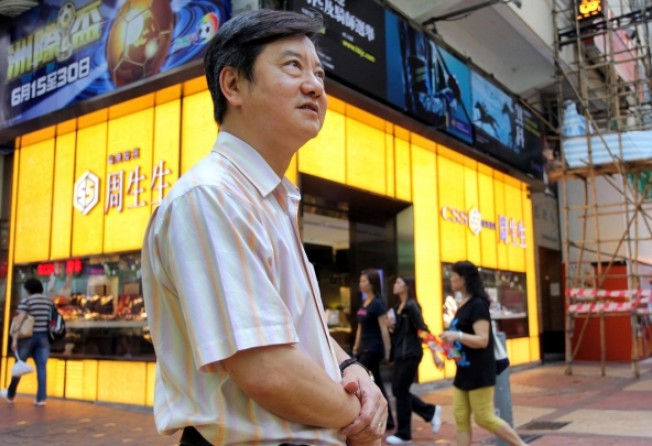Investor Lai Wing-to sees better retail rental returns in UK

Veteran Hong Kong investor Lai Wing-to has shifted his focus to the retail property market in Britain due to tightened mortgage loan conditions in Hong Kong.
One of the city's biggest individual real estate investors, Lai owns dozens of retail properties in Hong Kong.
He began to invest in Britain in 2010, when he spent some £38 million (HK$453.7 million) buying a commercial building at 221-223 Oxford Street, in London. But he says he is now taking a keener interest in such investments because they offer higher returns.
"The value of my building in London has doubled and monthly rents have increased by 30 per cent since I bought the property three years ago," said Lai.
Lured by the prospect of rising prices, Lai bought three stores at 527 Oxford Street for £38 million last December. Last month, he spent another £76 million on a five-storey retail building at 291 Oxford Street.
"In Hong Kong, you have to pay a stamp duty of 8.5 per cent when you buy a commercial property. But the taxation in Britain is simple. Foreigners need to pay a stamp duty of only 4 per cent, and profits tax is 20 per cent, which is a little higher than profits tax of 16.5 per cent in Hong Kong.
"But in Hong Kong you can now get a mortgage loan of only 30 to 40 per cent whereas in Britain most banks would offer a 60 to 70 per cent loan. Also, the rental yield of London's properties is higher."
Lai likened London's Oxford Street to Hong Kong's Russell Street and Canton Road. But shops in Oxford Street offered rental yields of 4 per cent, versus yields from shops in first-tier shopping streets in Hong Kong of 1 per cent to 2 per cent.
He said he had also studied the US market, but the taxation system was complicated and included a value-added tax.
In Hong Kong, sales of commercial property have dropped significantly since the government released cooling measures on February 22 and the Hong Kong Monetary Authority tightened mortgage loan conditions.
Lai said whereas investors were previously able to get mortgage loans of up to 70 per cent of the purchase price of a major property, they could now raise a loan of only some 40 per cent.
"Bank valuations of properties are also about 10 per cent below their acquisition price, which means you have to make a higher down payment. Since you now must pay double the stamp duty, if the bank offers a 30 per cent loan on a property for sale at HK$100 million, you have to afford an investment cost of 80 per cent."
Although he has turned his attention to London, Lai said this did not mean he would shun Hong Kong entirely. He would still keep an eye out for opportunities in the Hong Kong market, he said.